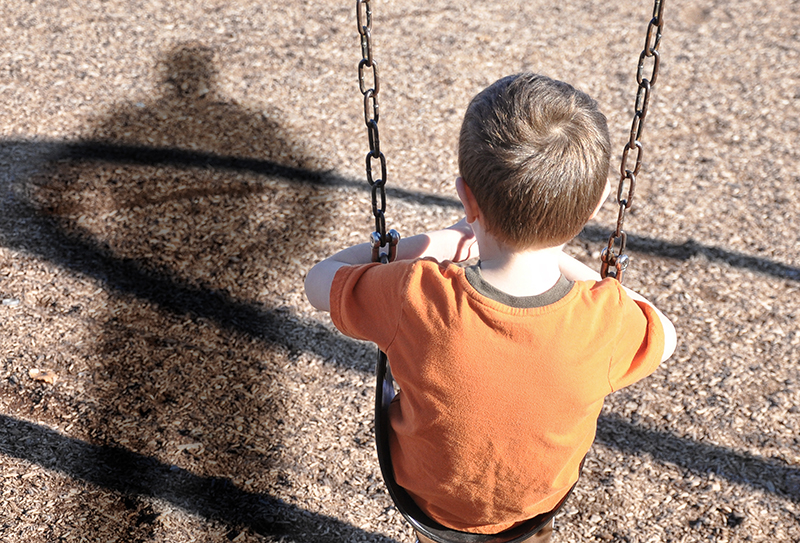October 2025 has brought three devastating revelations about child sexual exploitation in South Carolina—each more troubling than the last. From a sitting magistrate’s arrest to a former state representative’s guilty plea to explosive allegations against the state’s Attorney General, these developments have shaken public confidence in the justice system and created urgent questions about prosecutorial accountability.
For attorneys across South Carolina, these cases present critical implications for criminal defense practice, victim advocacy, government accountability, and the future of child protection laws in our state.
Bombshell #1: Charleston Magistrate Arrested for Child Sexual Abuse Material
The Case
On September 16, 2025, federal agents arrested James Benjamin Gosnell, Jr., 68, a sitting Charleston County Magistrate, on charges of possessing child sexual abuse material. The arrest of a sitting judge—someone entrusted with dispensing justice—sent shockwaves through South Carolina’s legal community.
According to the Department of Justice, the investigation began when the National Center for Missing and Exploited Children flagged multiple financial transactions with a known UK-based distributor of child sexual abuse material. The payments came from an online money transfer account linked to Gosnell’s phone number, address, and email.
When federal agents executed a search warrant at Gosnell’s home, they discovered a flash drive containing numerous videos and images depicting child sexual abuse, including content showing prepubescent minors, infants, and toddlers.
The Investigation Continues
The U.S. Attorney’s Office and Homeland Security Investigations are actively seeking the public’s help to identify possible victims in this ongoing investigation. The case was brought as part of Project Safe Childhood, a nationwide initiative launched by the U.S. Department of Justice to combat child sexual exploitation.
Implications for the Legal Profession
A magistrate’s arrest for crimes against children raises profound questions about judicial screening, oversight, and accountability. For criminal defense attorneys, this case demonstrates that no position—not even judicial office—provides immunity from investigation and prosecution when evidence of serious crimes exists.
Bombshell #2: Former Rep. RJ May Pleads Guilty to Distributing Child Sex Abuse Videos
The Five-Day Spree
On September 29, 2025, former South Carolina Representative RJ May stood before Federal Judge Cameron Currie and pleaded guilty to five counts of distributing child sexual abuse material. The 38-year-old West Columbia Republican, a founding member of the ultra-conservative Freedom Caucus, admitted to using the username “joebidennnn69” to exchange videos of children being sexually abused.
The scope of May’s crimes is staggering. According to prosecutors, May exchanged 220 different videos saved to his account, with prosecutors alleging he distributed files 479 times during a five-day period from March 31 to April 4, 2024, on the Kik messaging app. U.S. Attorney Bryan Stirling called the charges “deplorable, depraved and disgusting,” adding: “We’re still investigating. We’re not going to stop until we try to identify everybody that’s involved in these heinous acts.”
The Victims
Prosecutors identified 62 known victims in the videos May distributed. So far, the U.S. Attorney’s Office has identified 21 of them. Some victims are based outside the United States, complicating the investigation and victim services efforts.
The Consequences
May faces 5 to 20 years in federal prison on each of the five counts. His sentencing is scheduled for January 14, 2026—the second day of the 2026 South Carolina legislative session, a timing that ensures maximum public attention.
Beyond prison time, May’s federal conviction strips him of fundamental rights:
- No right to vote
- No right to hold public office
- No right to own firearms
- No right to serve on a jury
- Lifetime requirement to register as a sex offender
May, a married father of two young children, resigned his House seat in August 2025. A special election to fill his District 88 seat is scheduled for December 23, 2025.
The Evidence Trail
Federal investigators connected May to the crimes through multiple data points:
- The Kik account was linked to May’s home IP address
- The account was accessed from May’s mobile device
- His phone had “joebidennnn69” saved as a commonly used phrase
- His phone received hundreds of Kik notifications during the five-day period the account was active
- Device activity logs showed May was actively using his phone and laptop while the videos were being sent
May initially planned to represent himself at trial (he is not an attorney), but ultimately signed a plea agreement reducing the charges from 10 counts to 5 in exchange for his guilty plea.
Bombshell #3: Rep. Nancy Mace Exposes 92.5% Dismissal Rate of Child Sex Crimes by AG Wilson
The Explosive Revelation
On October 6, 2025—just two days ago—U.S. Representative Nancy Mace dropped a bombshell that threatens to dwarf the individual cases of Gosnell and May. Through a South Carolina Freedom of Information Act (FOIA) request, Mace uncovered data showing that South Carolina Attorney General Alan Wilson dismissed 92.5% of child pornography and sexual exploitation cases in Dorchester County between 2019 and 2022.
The numbers are stunning:
- 385 total cases involving child pornography and sexual exploitation of minors
- 356 cases dismissed outright (92.5%)
- Only 29 cases resulted in convictions (7.5% conviction rate)
- Of those 29 convictions, only 2 defendants received active prison time
- The rest received probation or time-served sentences
The Attorney General’s Response
The Attorney General’s Office disputes these figures, stating that the statistics conflate individual charges with cases. According to Wilson’s office, 42 cases were resolved during this period, with 30 resulting in guilty pleas or trials, 8 dismissed for insufficient evidence, 3 transferred to federal authorities, and 1 closed due to the offender’s death. Wilson’s office maintains that when defendants face multiple charges, dismissing some charges as part of plea agreements is standard prosecutorial practice and does not represent case dismissals.
The Local Prosecutor’s Frustration
The data came from the First Circuit Solicitor’s 2022-2023 Dorchester County budget request, where Solicitor David Pascoe formally requested his office take over prosecution of these cases from the Attorney General’s Office.
According to the budget document, law enforcement agencies in the First Judicial Circuit have “lost confidence in the Attorney General’s Office due to its failure to prosecute these cases efficiently and its leniency in negotiating sentences.”
Pascoe specifically cited:
- Failure to prosecute efficiently: Cases languishing without action
- Lenient plea bargains: Deals that undermine victims and fail to protect children
- Systemic problems: A pattern suggesting institutional failure rather than isolated incidents
Rep. Mace’s Response
“If this is happening in Dorchester County, where 92.5% of all pedophile cases prosecuted by the Attorney General are dismissed, how many other counties are seeing the same failures?” Mace asked in her October 6 statement.
Mace announced she is sending a formal letter to the U.S. Department of Justice requesting an independent audit of the South Carolina Attorney General’s handling of Internet Crimes Against Children prosecutions and coordination with local solicitors.
“Protecting children from sexual exploitation should never be political,” Mace said. “The data speaks for itself and parents in South Carolina deserve answers.”
Statewide Implications
Mace’s revelation raises critical questions:
- Is the 92.5% dismissal rate isolated to Dorchester County, or is it systemic across South Carolina?
- Why are so few child sex crime defendants receiving prison time?
- What is the Attorney General’s prosecutorial strategy for these cases?
- Are local solicitors better equipped to handle these prosecutions?
- Should legislative reforms mandate different handling of child sex crimes?
The Bigger Picture: Lawmakers Grapple with Reform
According to the Post and Courier, South Carolina lawmakers are now grappling with the fallout from these high-profile cases, debating “whether harsher penalties and more legislation is the answer.”
The timing is critical. With:
- A sitting magistrate under federal indictment
- A former state representative awaiting sentencing
- A 92.5% dismissal rate exposed by a U.S. Congresswoman
- Public confidence in the justice system eroding
…the pressure for legislative action has never been greater.
Practice Area Implications
Criminal Defense
Defense attorneys handling child sex crime cases face heightened scrutiny and public emotion. These cases require:
- Thorough investigation: As the May case demonstrates, digital forensics and device tracking create extensive evidence trails that defense attorneys must carefully analyze
- Understanding federal vs. state prosecution: Child sex crimes can be prosecuted in state or federal court, with vastly different penalties and procedures
- Navigating public perception: Managing online reputation becomes critical when defending clients accused of crimes against children
- Ethical obligations: Defense attorneys must balance zealous advocacy with professional responsibility, especially in cases that generate intense public reaction
For criminal defense attorneys, establishing expertise while maintaining professional boundaries is essential. Ethical success story marketing provides guidance on communicating competence without exploiting sensitive cases.
Victim Advocacy and Civil Litigation
The revelation of a 92.5% dismissal rate creates opportunities for victim-focused legal work:
- Civil claims: When criminal prosecution fails, victims may pursue civil litigation against perpetrators, institutions that enabled abuse, or government entities that failed in their duty to protect
- Victim compensation: Attorneys can help victims navigate the Crime Victims’ Compensation Fund and other resources
- Advocacy for systemic change: Lawyers can work with advocacy organizations to push for legislative reforms
Attorneys building practices around victim advocacy should ensure their online presence reflects this specialization through targeted local search optimization and clear communication about their services.
Government Accountability & Administrative Law
Mace’s call for a DOJ audit raises questions about:
- Prosecutorial discretion and accountability
- Inter-agency coordination (AG’s Office vs. local solicitors)
- Legislative oversight of executive branch functions
- FOIA transparency and public access to prosecution data
Attorneys specializing in government accountability work should monitor this situation closely, as it may create precedent for oversight mechanisms and transparency requirements.
Family Law
These cases have ripple effects in family law:
- Custody disputes involving parents accused or convicted of child sex crimes
- Protective orders and supervised visitation requirements
- Department of Social Services intervention
- Parental rights termination proceedings
Family law attorneys must stay current on criminal developments that may affect their cases and understand the intersection between criminal and civil family law.
Building Legal Authority in Crisis
For attorneys who want to establish themselves as authorities on child protection law, criminal justice reform, or victim advocacy, publishing in bar journals and legal publications can build credibility and demonstrate expertise.
Additionally, speaking at conferences and legal education events positions attorneys as thought leaders on these critical issues—generating referrals while contributing to important conversations about justice system reform.
Communicating with Clients About Sensitive Issues
When major legal developments affect public safety and children’s welfare, attorneys should proactively communicate with clients through strategic email newsletters that demonstrate awareness without sensationalizing tragedy.
For law firms using social media to connect with potential clients, these cases require especially careful, professional communication that respects victims while providing accurate legal information.
What Attorneys Should Do Now
1. Understand the Landscape
These three October bombshells represent more than isolated incidents—they suggest systemic issues in how South Carolina handles child sexual exploitation cases. Attorneys should:
- Monitor legislative proposals for child protection law reforms
- Track the DOJ audit request and any resulting federal investigation
- Stay current on sentencing trends and prosecutorial patterns
- Understand the jurisdictional issues between state and federal prosecution
2. Evaluate Your Practice Focus
Consider whether your firm should expand or develop expertise in:
- Child sex crime defense (with appropriate ethical safeguards)
- Victim advocacy and civil litigation for abuse survivors
- Government accountability and prosecutorial oversight
- Family law matters involving child safety concerns
3. Ensure Your Online Presence Reflects Your Values
For attorneys who represent victims or focus on child protection advocacy, your website and online presence should clearly communicate:
- Your commitment to protecting children
- Your expertise in relevant practice areas
- Your track record of successful advocacy
- Your professional, ethical approach to sensitive cases
Personal injury and victim advocacy websites should emphasize compassion, competence, and results without exploiting victims’ suffering.
4. Prepare for Legislative Changes
When high-profile cases expose systemic failures, legislative action typically follows. Attorneys should:
- Join relevant South Carolina Bar sections
- Participate in legislative comment periods
- Offer expertise to lawmakers crafting reforms
- Educate clients about potential legal changes
5. Maintain Professionalism in Public Discourse
These cases generate strong emotions and heated public debate. Attorneys should:
- Comment only on matters within their expertise
- Respect confidentiality and ethical obligations
- Avoid inflammatory rhetoric that exploits victims
- Focus on systemic solutions rather than political finger-pointing
The Path Forward
South Carolina faces a moment of reckoning. Three October bombshells—a sitting magistrate’s arrest, a former representative’s guilty plea, and a 92.5% dismissal rate exposed by a U.S. Congresswoman—have converged to create an unprecedented crisis of confidence in how our state handles child sexual exploitation.
The questions before us are stark:
- Will the Attorney General explain the dismissal rate controversy, or will federal investigators need to intervene?
- Will lawmakers enact meaningful reforms, or will political considerations stall necessary changes?
- Will the justice system regain public trust, or will this crisis deepen?
- Most importantly: Will South Carolina’s children be better protected going forward?
For attorneys, this moment presents both challenges and opportunities:
- Challenges: Navigating increased public scrutiny, managing emotionally charged cases, and maintaining professionalism amid crisis
- Opportunities: Contributing to systemic reform, building expertise in emerging practice areas, and serving clients who desperately need skilled legal representation
The legal community’s response to these October bombshells will shape South Carolina’s child protection landscape for years to come. Attorneys who rise to meet this moment—with competence, compassion, and commitment to justice—will help build a legal system that truly protects the most vulnerable among us.
About the Author
Jim Toppe is the founder of Toppe Consulting, a digital marketing agency specializing in law firms. He holds a Master of Science in Management from Clemson University and teaches Business Law at Greenville Technical College. Jim also serves as publisher and editor for South Carolina Manufacturing, a digital magazine. His unique background combines legal knowledge with digital marketing expertise to help attorneys grow their practices through compliant, results-driven strategies.
About This Article
This analysis was prepared by Toppe Consulting, a digital marketing firm specializing in helping South Carolina law firms communicate their expertise and values effectively. We understand that sensitive legal matters require thoughtful, professional communication that respects victims while demonstrating legal competence.
If your practice focuses on criminal defense, victim advocacy, family law, or government accountability, ensuring your online presence accurately reflects your expertise and professional values is critical. We help attorneys position themselves as trusted authorities on the issues that matter most to their communities.
Toppe Consulting
Digital Marketing for Legal Professionals
jim@toppeconsulting.com | toppeconsulting.com
(Based in Salem, SC—Serving South Carolina)
Works Cited
“Charleston County Magistrate Charged with Possessing Child Sexual Abuse Material.” U.S. Department of Justice, U.S. Attorney’s Office, District of South Carolina, Sept. 2025, www.justice.gov/usao-sc/pr/charleston-county-magistrate-charged-possessing-child-sexual-abuse-material. Accessed 8 Oct. 2025.
“Ex-Republican South Carolina House Member Admits to Distributing Hundreds of Child Sex Abuse Videos.” U.S. News & World Report, 29 Sept. 2025, www.usnews.com/news/best-states/south-carolina/articles/2025-09-29/ex-republican-south-carolina-house-member-admits-to-distributing-hundreds-of-child-sex-abuse-videos. Accessed 8 Oct. 2025.
“Ex-SC Rep. RJ May to Plead Guilty to Sending Child Sex Abuse Videos.” SC Daily Gazette, 26 Sept. 2025, scdailygazette.com/2025/09/26/ex-sc-rep-rj-may-to-plead-guilty-to-sending-child-sex-abuse-videos/. Accessed 8 Oct. 2025.
“Former Rep. RJ May Pleads Guilty to Sending ‘Disgusting and Depraved’ Child Sex Abuse Videos.” SC Daily Gazette, 29 Sept. 2025, scdailygazette.com/2025/09/29/former-rep-rj-may-pleads-guilty-to-sending-disgusting-and-depraved-child-sex-abuse-videos/. Accessed 8 Oct. 2025.
“Former SC Lawmaker RJ May Pleads Guilty to Distributing Child Sex Abuse Files.” South Carolina Public Radio, 29 Sept. 2025, www.southcarolinapublicradio.org/sc-news/2025-09-29/former-sc-lawmaker-rj-may-pleads-guilty-to-distributing-child-sex-abuse-files. Accessed 8 Oct. 2025.
“Greenville, SC News | Upstate’s Trusted Local Source.” The Post and Courier, 5 Oct. 2025, www.postandcourier.com/greenville/. Accessed 8 Oct. 2025.
“Rep. Nancy Mace Uncovers South Carolina Attorney General Alan Wilson Dismissed Over 92% Of Pedophile Cases In SC-01 County From 2019 To 2022.” Representative Nancy Mace Official Website, 6 Oct. 2025, mace.house.gov/media/press-releases/rep-nancy-mace-uncovers-south-carolina-attorney-general-alan-wilson-dismissed. Accessed 8 Oct. 2025.
“South Carolina Politician Accused of Child Sex Crimes.” WYFF4, 15 June 2025, www.wyff4.com/article/south-carolina-politician-child-sex-crimes-rj-may/65045735. Accessed 8 Oct. 2025.
IMPORTANT LEGAL NOTICE
This article discusses both ongoing and concluded criminal proceedings involving allegations of child sexual exploitation.
James Benjamin Gosnell, Jr. is charged with possession of child sexual abuse material but has not been convicted. He is presumed innocent until proven guilty in a court of law. All references to his case discuss allegations from official government charging documents—not established facts. He has the constitutional right to a fair trial by an impartial jury.
Robert John “RJ” May III has pleaded guilty in federal court to five counts of distributing child sexual abuse material. His guilty plea constitutes a legal admission of the facts described in court proceedings. He awaits sentencing in January 2026.
The matter involving Attorney General Alan Wilson concerns a public policy debate over prosecutorial statistics and case handling. The 92.5% dismissal rate claim comes from official budget documents and FOIA requests. The Attorney General’s Office disputes the interpretation of these statistics, stating they conflate charges with cases. This article presents both perspectives. No criminal charges are involved in this matter—it is a policy and political accountability discussion.
All information in this article is derived from:
- Official U.S. Department of Justice press releases
- Federal court proceedings and plea agreements
- Congressional press releases and FOIA documents
- South Carolina government budget requests
- Verified news sources
This article is provided for informational purposes only and does not constitute legal advice.




